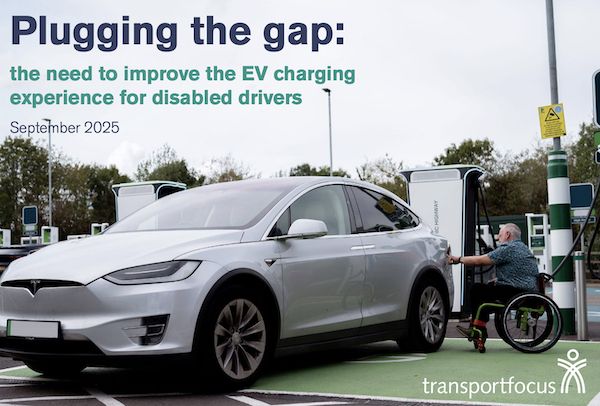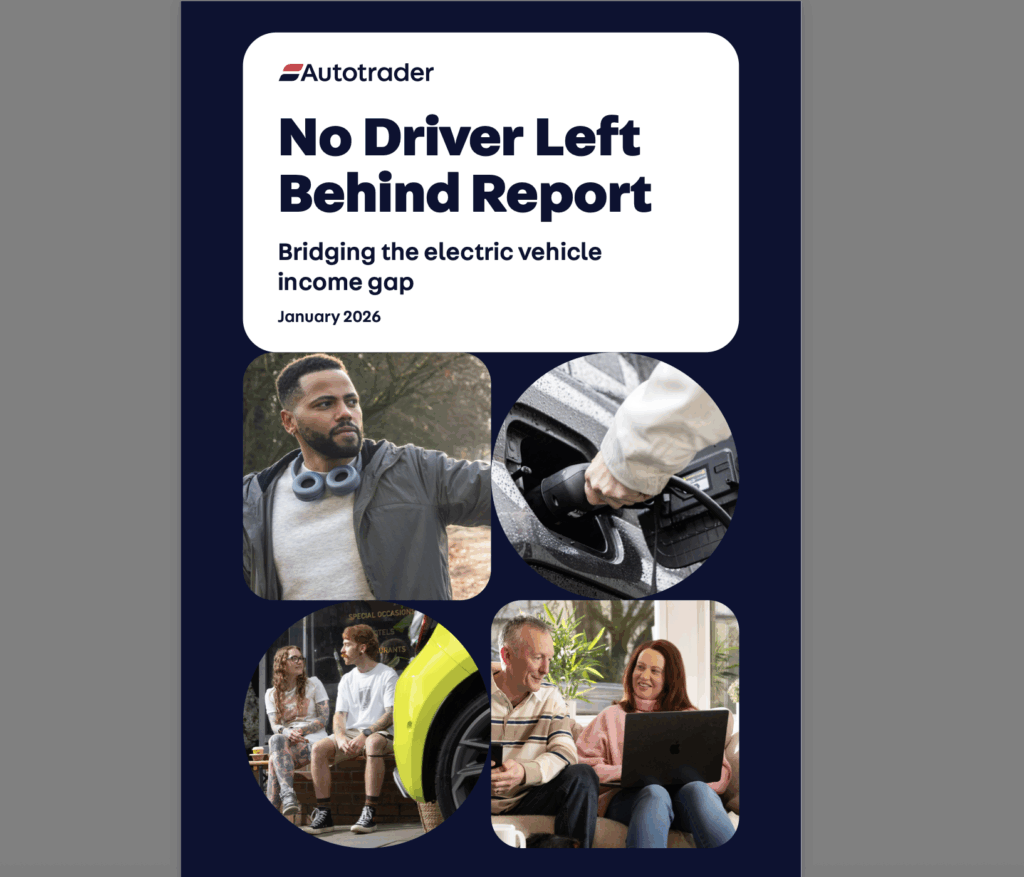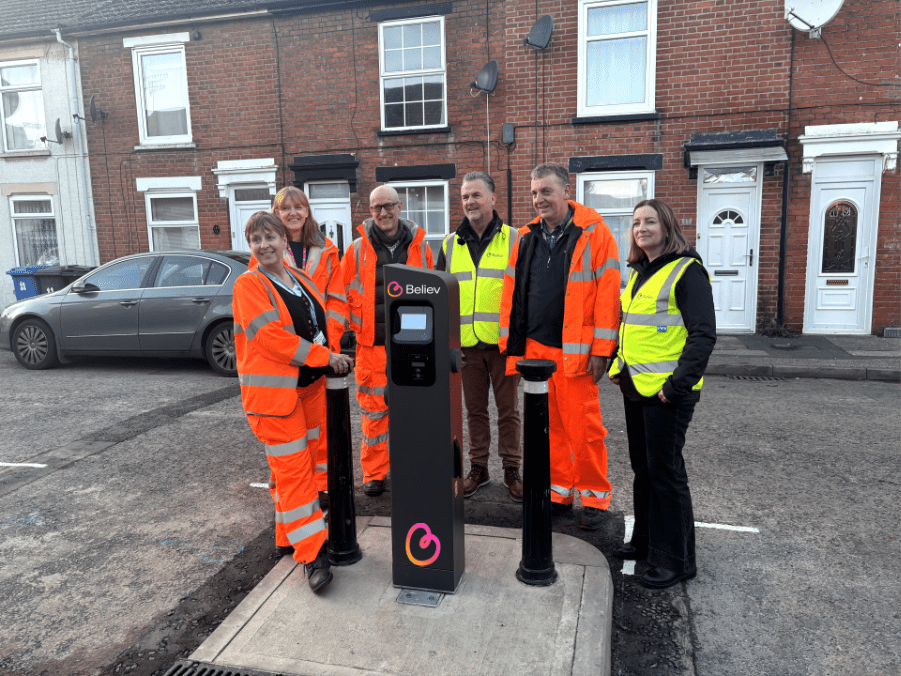England’s electric vehicle charging infrastructure is overlooking disabled drivers, a new report by Transport Focus has found.
The independent watchdog is calling in its new report ‘Plugging the gap: the need to improve the EV charging experience for disabled drivers‘ for the UK Government to outline its plan for how, and when, an accessible EV charging infrastructure will be delivered.
The news follows consistent calls by Motability Operations for the government to do more on the issue.
Transport Focus has now added in its own study that disabled users “need confidence in the charging network, particularly as a significant proportion of their homes are not suited to the installation of a home charger”.
At present, there are no chargers on England’s motorways and major A roads that have been accredited with the voluntary standards for accessible charging, the watchdog has claimed.
Guidelines introduced in 2022 to provide an accessibility standard for chargepoints are not a compulsory requirement and EV drivers still report encountering significant barriers. These include issues such as small bays preventing them getting out of the vehicle, raised kerbs, plinths and bollards in front of charge points, poor locations of charge points in relation to other motorway service facilities. They can also find it difficult to handle equipment.
Transport Focus is calling for:
- an urgent focus on delivering accessible electric vehicle charging infrastructure across England’s motorways and major ‘A’ roads
- for government to explore the role of regulation for mandatory accessibility standards to secure better outcomes for disabled drivers
- ensure accessible electric vehicle charging standards fully meet disabled users’ needs and are straightforward for providers to interpret and implement
- outcomes to be appropriately monitored, with continued co-design to ensure progress can be sustained and tracked and action taken as necessary
- immediate gaps in the accessibility of existing electric vehicle chargepoints to be addressed.
Transport Focus said it would “work collaboratively with the industry to ensure that changes are both practical and sustainable”
Louise Collins, Director at the independent watchdog Transport Focus, said:
“Disabled motorists should be able to feel secure in the knowledge that they can easily charge their electric vehicle independently on the country’s motorway network. If we don’t tackle this swiftly then some disabled people could be left behind, unable to drive electric vehicles and potentially excluded from the road network altogether.
“The time to act is now and we need confidence that there is a plan that will genuinely deliver this. We are working with Government to explore the role regulation could play in a longer-term solution with mandatory standards and for chargepoint providers to deliver more immediate improvements.”
Graham Footer, Chief Executive, Disabled Motoring UK, said:
“We are expecting disabled people to transition to, and use, EVs without a charging infrastructure that supports them. We need a robust plan that meets users’ needs and gives them the confidence to travel in their EV. A clearer framework, supported by regulation, would help chargepoint providers prioritise accessibility.”
Paul Comer, Director of EV Implementation, Roadchef, said:
“We recognise that a consistent, nationwide approach, supported by a stronger regulatory framework, could help accelerate progress and give customers greater confidence.
“While there are some positive examples of chargepoint operators trying to bridge accessibility gaps this lacks the consistency required to allow disabled people to travel with confidence knowing they’ll be able to charge.
“To meet PAS 1899:2022 accessibility standards charging bays should meet specific size requirements, have hatching around each bay to allow accessibility for vehicles adapted to disabled users, and all plinths and bollards be removed to allow level access.”
Vicky Edmonds, CEO of EVA England, said:
“Ensuring a public charging system that is accessible to all is essential if we are to bring everyone with us on the transition to electric driving. With the charging network growing at accelerated pace it is vital that the Government publish its revised accessibility standards – which will make delivering accessible chargepoints easier – as soon as possible, and that these standards are mandated in legislation.
“All drivers should be able to choose EVs with the confidence that they will be able to use the charging system wherever and whenever they need to.”
Vicky Read, CEO of ChargeUK, said:
“ChargeUK and its members believe that no drivers should be left behind in the transition to EVs, including those who have accessibility needs. Charge point operators are working with local authorities, private landlords and charging equipment manufacturers to ensure that the charging needs of disabled drivers are met when developing sites.
“ChargeUK was pleased to be part the working group reviewing the PAS 1899 standards. We look forward to the results of that process being announced very soon.
“As an organisation, we are committed to work with all stakeholders to ensure the guidelines are fit to deliver the twin goals of an accelerated, commercially-led national rollout and the provision of accessible charging for all.”











